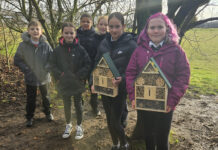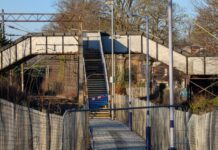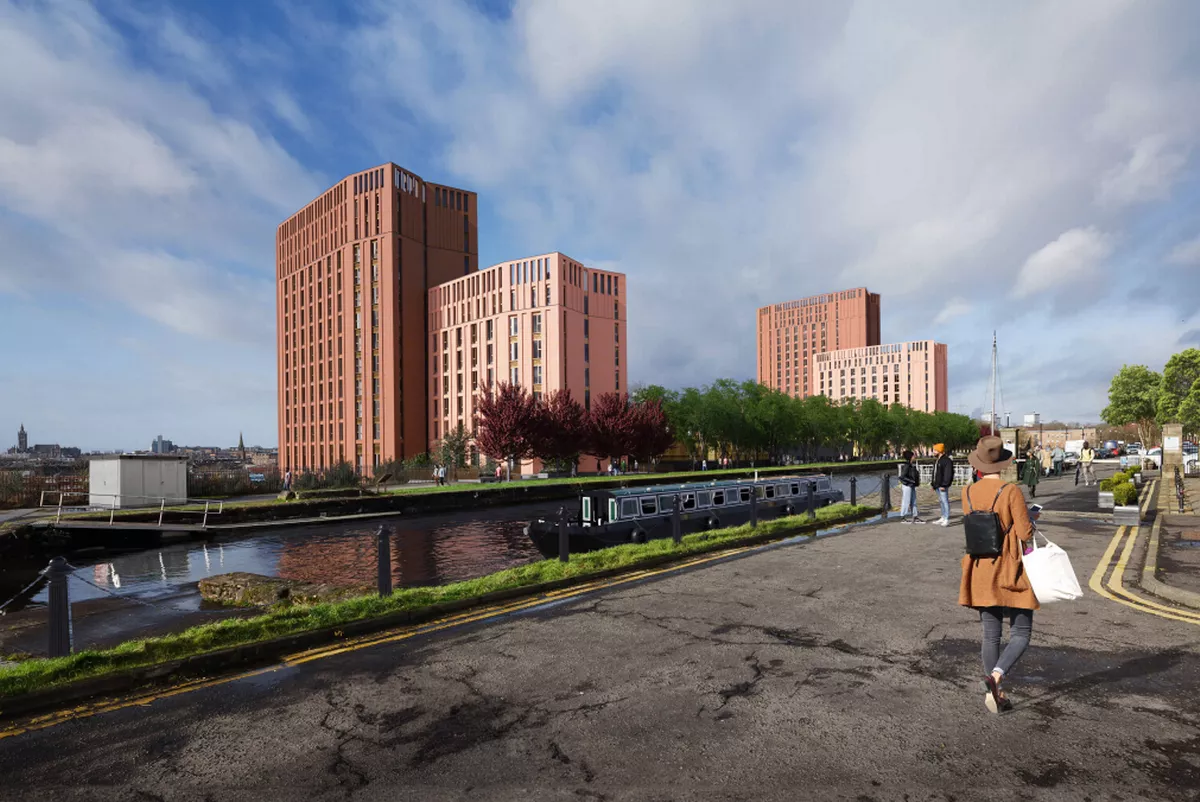
SCOTTISH Opera has secured planning permission for the build of a new headquarters and student accommodation in Glasgow.
The mixed-use development will be built at the organisation’s New Rotterdam Wharf site by the Forth & Clyde Canal in the north of the city.
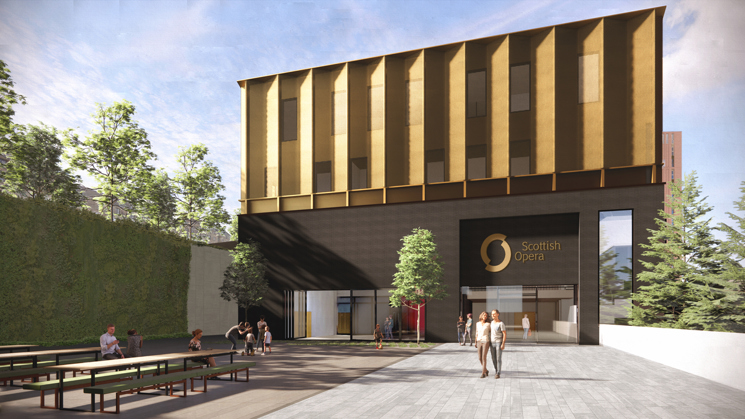
Scottish Opera explained it will partially fund the new headquarters and associated public realm by fully developing the site as a true mixed-use development, with the student accommodation – which features 705 beds across two 20-storey blocks – hoped to recognise the demand for such housing in Glasgow.
The design, developed by Page\Park Architects, aims for a ‘thriving’ mixed-use development – featuring the new headquarters; student accommodation; orchestral rehearsal and performance spaces; classrooms; and café.
Further to this, ‘extensive’ public realm improvements will also be undertaken to activate the western edge of the Forth & Clyde Canal, as well as a publicly accessible rooftop ‘hidden garden’ being created. The garden, flanked by a café space, will provide opportunity for performance as well as quiet relaxation in this city centre location.
Scottish Opera general director Alex Reedijk said, “As long-term members of the creative community of North Glasgow, we at Scottish Opera are pleased that the planning committee have approved our ambitions for the company and the wider public realm on the Maryhill spur of the Forth & Clyde canal. This approval is the next milestone on a long journey to securing a 21st century headquarters for Scottish Opera, rooting the company in Glasgow for the next 60+ years.
“We are delighted an additional benefit will be an improvement to the canal towpath and space around it, including a public rooftop garden and café, with inspiring views across the west of Glasgow. The new building will be a place where people can come together to meet like-minded people, where an intersection with artists and the public builds a strong community spirit, with performances, outreach and education events designed to appeal to people of all ages and tastes.
“On behalf of Scottish Opera, thank you to all the individuals and organisations who have supported our vision for the future of Scottish Opera and north Glasgow. We are pleased to take the feedback from the local community on board and we acknowledge the support of the canal corridor as our ambitious plans come to fruition.”
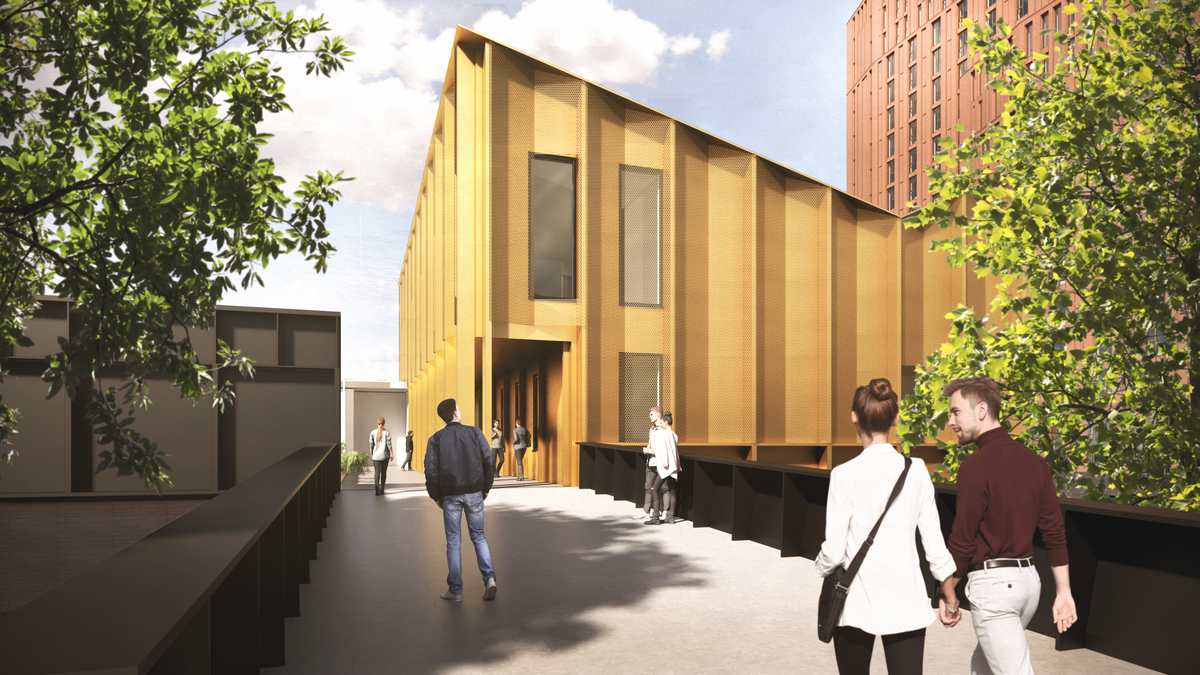
Andrew Bateman, MD of Page\Park Architects, added, “It is an absolute privilege to support our good friends at Scottish Opera in this journey to realise their vision for the future of their organisation at New Rotterdam Wharf, and this endorsement by the planning committee is the next step in that journey. As a practice wholly committed to the re-use and regeneration of buildings and places within the city, supporting Scottish Opera to continue to flourish, with a design that will contribute significantly to the ongoing regeneration and development of a ‘cultural hub’ along the Glasgow branch of the Forth & Clyde Canal, is tremendously exciting for us.
“We wish to thank the full design team involved in the project for the creativity they each brought to the process and also to the City Design Group for the robust and positive dialogue through pre-app and application stages that helped shape and refine the proposals”.
A spokesperson from the University of Glasgow commented, “Scottish Opera’s plans positively contribute to the regeneration efforts at New Rotterdam Wharf and the site is well connected to serve several of the city’s HE institutions. The potential economic impact and further social and creative benefits brought by this mixed-use development would positively contribute to, and help to address, several key issues facing the city, not least the ability to maintain the attractiveness of Glasgow as a place to study. The proposed plans for providing enhanced public realm, opportunities to deliver a range of community benefits, in particular engaging with graduates and young people through the various training and skills programmes, are encouraging.”





